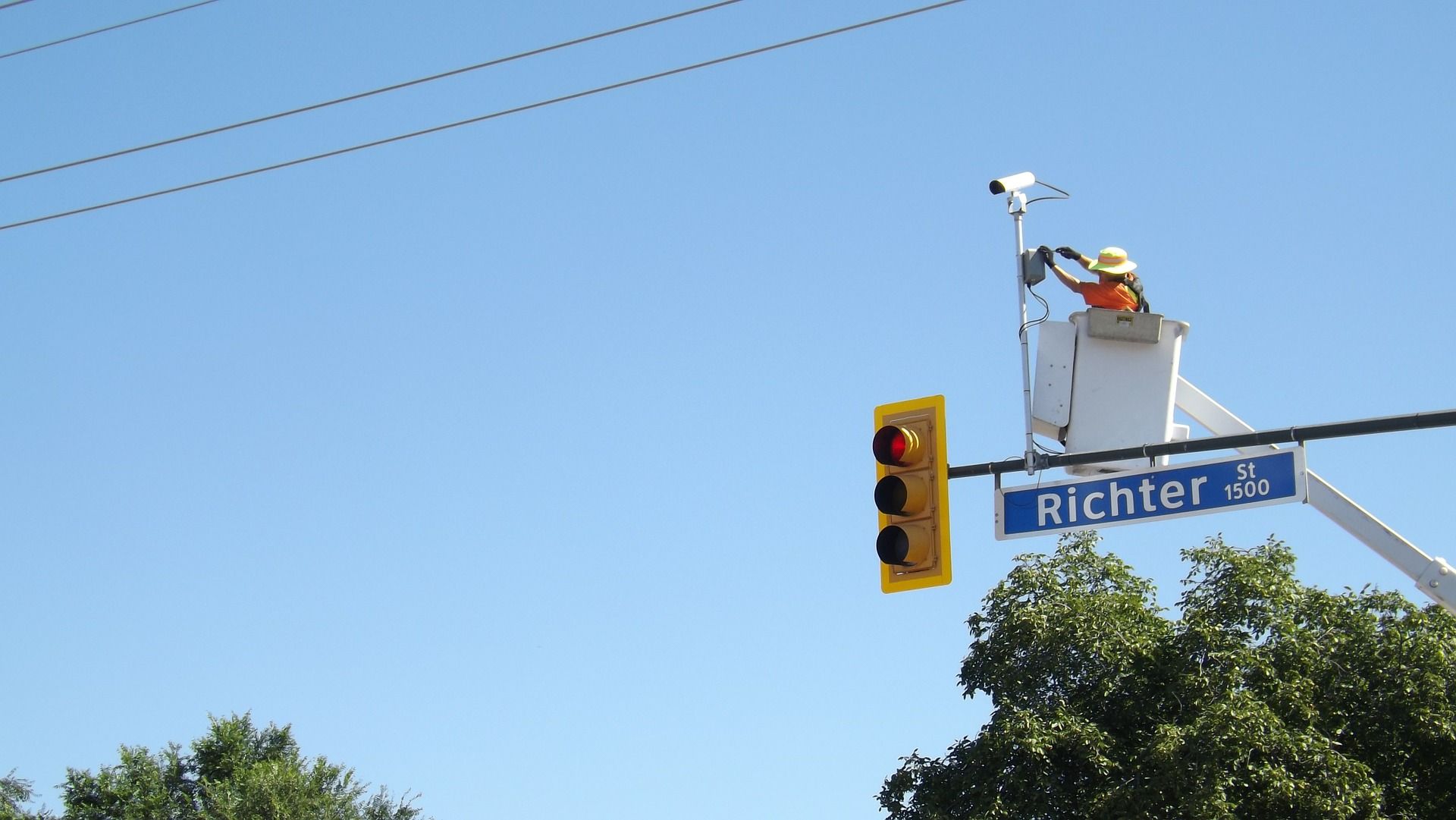Automated traffic cameras have been used for more than 20 years as a way to catch those who choose to disobey traffic signals or posted speed limits. It’s nothing new, but ever since they have been put into use, it has raised privacy concerns for those who are leery of big brother watching in on them. Be that as it may, the IIHS is reporting that red light cameras do, indeed, save lives. In fact, the IIHS claims that “red light camera programs in 79 large U.S. cities saved nearly 1,300 lives through 2014.” Now that is a pretty big deal.
Adrian Lund, the President of IIHS, said, “We know we have a problem: people dying at signalized intersections because of people running red lights. We know red light cameras are part of the solution.”
IIHS reports that there were at least 709 deaths and some 126,000 injuries caused by people running red lights in 2014. Furthermore, those who disobey the traffic signals are the minority of those killed in such crashes – meaning those who have the right away are often the ones injured or killed in such accidents. In 2011, an IIHS study showed that large cities with red light camera programs in use between 2004 and 2008 saw significant decreases in per capita rates of fatal crashes at intersections with traffic signals.
The biggest problem is that some cities have been pressured to disable red light cameras over privacy concerns. As such, the IIHS has reported that those cities experienced 30-percent more fatal red light running crashes per capita. Those cities that have turned on red light cameras have seen a 21-percent drop in fatal red light crashes per capita. To put it simply, it has been found that red light camera programs – especially those that are well advertised – have a significant impact on whether or not people choose to obey traffic signals.
Why it Matters
I’m one who takes my privacy very seriously. In fact, anything that has to do with tabs being kept on me really bugs me. I don’t think that anyone, let alone the government or police force, should be allowed to keep tabs on us unless there is a very good reason (think terrorism or major crime concerns.) That said, I’ve never really had too much of an issue with red light cameras, as long as they are only used to monitor intersections in the event of an accident, and not as a way of generating more revenue. Even though our vehicles are getting better at protecting us in the unfortunate event of a crash, we still need to be safe ourselves. Part of being safe is obeying traffic laws, and in this case, traffic signals. And, believe it or not, those cameras at traffic signals can actually work to your advantage.
A few years back, I was working part time for a local auto parts store as a counterman and delivery driver. I was about to finish the day’s first big group of deliveries to local repair shops when all of the sudden I was T-boned while turning left at a rather busy intersection. I had been waiting to turn for a while as oncoming traffic zipped by me. Sitting in the middle of the intersection, the light turned red, and it was finally my turn to go. One lane of traffic had already come to a stop. The inner lane was free of traffic except for late-model Suburban (long-wheel-base model at that) that was a good 200 feet back from the light. With the light already turned red, I began to take my turn and exit the intersection as I’m supposed to do. As I start to make my turn, I happen to glance up, and the last thing I see is this tank of a Suburban three feet from the side of my truck.
I suffered a concussion and enough pain that it felt like I had just gone 15 rounds with Rocky Balboa, but ultimately I was okay. The driver of the Suburban, of course, tried to put the blame on me and even attempted to file a lawsuit against myself and the company I worked for. The only thing that proved I wasn’t at fault, as the witnesses at the scene either left or said they didn’t see anything, was the camera mounted atop the intersection that clearly showed that Suburban increasing speed and running through the light after it turned red.
In this specific situation, those red light cameras saved me a lot of problems and prevented me from having to fight off a lawsuit. On top of that, the IIHS has provided pretty good evidence that they deter folks from blowing through those red lights. So, while things like highway-mounted cameras that are used to generate extra revenue still bug me, red light cameras seem more like a necessity because they do work. What do you think about red light cameras? Are you for them or against them? Let us know in the comments section below.

